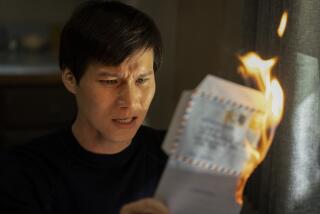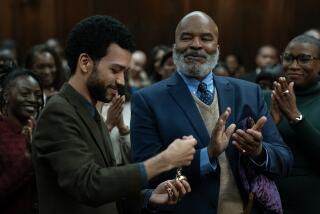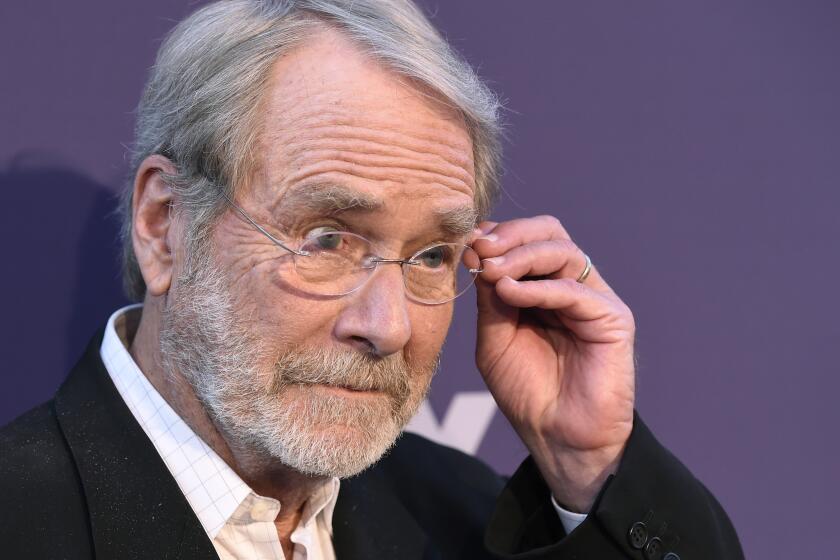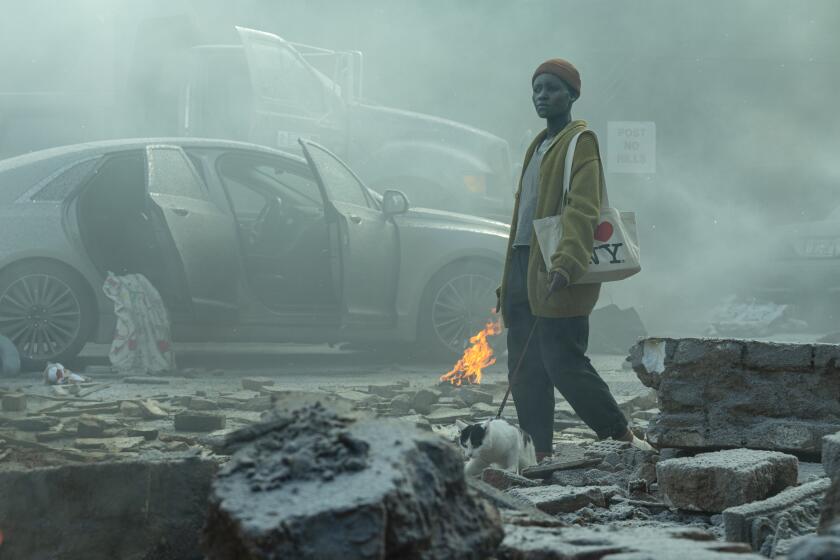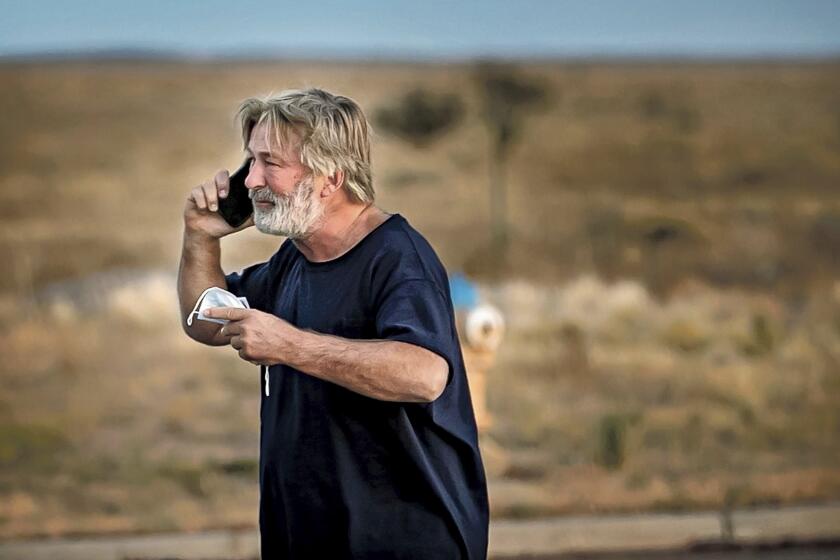Why Spike Lee put a Black Trump supporter at the heart of his new film ‘Da 5 Bloods’
When Spike Lee set out to make his new Netflix film “Da 5 Bloods,” available for streaming today, he never imagined it would come out in the midst of a national reckoning with systemic racism unlike anything seen in half a century. That said, he isn’t entirely shocked either.
“In no way, shape or form did I think that a miracle had happened and Black and brown people would not be murdered,” Lee told The Times two weeks ago, as protests were erupting across the country following the police killing of George Floyd in Minneapolis. “It’s not like this stuff has gone away.”
Throughout his career, in films like “Do the Right Thing,” “Malcolm X,” “Chi-Raq” and the screenplay Oscar-winning “BlacKkKlansman,” Lee has explored the countless ways that America’s original sin of racial oppression has continued to trouble the nation’s psyche and rend the fabric of society — and “Da 5 Bloods” is no exception. In this “Treasure of the Sierra Madre” style action-adventure yarn about a group of Black Vietnam vets searching for buried treasure, Lee saw the opportunity to tell a deeper story about the sacrifices African Americans have made fighting overseas for rights they have not always been afforded by their own country.
Retrofitting an original script by Danny Bilson and Paul De Meo in which the soldiers were white, Lee and co-writer Kevin Willmott decided to bring those deeper themes to the fore by making one of the vets, the volatile, embittered Paul (Delroy Lindo), an ardent supporter of Donald Trump. In doing so, “Da 5 Bloods” ties the political turbulence and civil rights struggles of the Vietnam era directly to today, much as “BlacKkKlansman” drew a direct line from the story of a Black police officer infiltrating the Ku Klux Klan in the 1970s to the resurgent white supremacy movement of the Trump era.
“Spike always tries to connect the past with the here and now,” says Willmott, who previously collaborated with Lee on “Chi-Raq” and “BlacKkKlansman” and who is a professor of film and media studies at the University of Kansas. “That’s always something that we’re looking for when he brings me on to a project. That was really our way of connecting it to something really relevant to today.”
When Lindo, who had earlier worked with Lee on films including “Malcolm X” and “Crooklyn,” first read the script, he was initially repulsed by the idea of playing a devoted fan of Trump, who he says is “anathema to everything I believe in.”
Before agreeing to sign on, Lindo went to Lee with his reservations. “I asked Spike, ‘Can we make him like an arch-conservative without him being a Trumpite?’ ” Lindo says. “He thought about it for a few days and reached out to me and said he really needed the character to be a Trumpite for the story. He said, ‘I really need the MAGA hat and I need him to be a Trumpite.’ ”
Lee, whose preferred nickname for the president is Agent Orange, persuaded Lindo that making Paul a Trump fan would not only generate some interesting dramatic friction with his fellow vets but would also enable the film to touch on the sort of hot-button political currents that his work has so often tapped. (As for the recent controversy over former Vice President Joe Biden’s suggestion that any African American who supports Trump is not really Black, Lee says that was “a small misstep” when compared with the president’s own incendiary and divisive rhetoric.)
“Delroy tried to talk me out of it, but he knew it was the best thing for his character and the best thing for this film,” Lee says. “It wasn’t a long discussion. It was very short and Delroy understood.”
In placing a Black Trump supporter at the heart of the narrative, Willmott says the goal was not merely to be provocative but to more deeply explore what he sees as the misplaced anger that fuels the president’s base.
“The thing Spike and I are trying to do with Paul being a Trump supporter is really get at the issue of grievances,” says Willmott, noting that he personally lives in “the only blue dot in an entirely red state.” “I think grievances are a huge part of the whole Trump phenomenon. He’s been able to reach people that feel like they’ve been screwed, and Paul’s character has had such a hard time on so many different levels that he just seemed like he would connect with all of that. We try to show how when you distill the complicated reality that we’re living in right now into something really simple and angry and ultimately selfish, people can really respond to that.”
While he did not speak with any Black Trump supporters as part of his research, Lindo ultimately came to his own understanding of Paul’s psychology. “This is a man who has been betrayed, not least by his country,” Lindo says. “When he came back from Nam, it was as if they were the enemy, and Paul has personalized that kind of violation of himself. That was how I reconciled it within myself.”
“You might say Paul is a tragic Shakespearean figure,” Lee says. “He has so many demons that are haunting him. You have to remember, they didn’t have that term post-traumatic stress syndrome when these guys came back from Vietnam. They were called baby-killers. They were spat upon. And it is criminal that we have American vets who are homeless now. It’s an absolute disgrace that these men and women — white, black, brown — put their lives on the line for this country and they come back and are living on the streets.”
In advance of the release of “Da 5 Bloods,” Lee held screenings of the film for Black Vietnam veterans, who seemed gratified to see themselves represented by cinema’s premier chronicler of the Black American experience. “All these guys gave me a big hug and said, ‘Spike, thank you for making this film. But what took you so ... long?’” he says.
At a time of such extreme polarization, though, with a pandemic raging and images of protests continually splashed across the news, it remains to be seen what audiences will ultimately make of Lee’s latest blend of action, comedy, history and sharp political commentary.
“I’m not going to predict how people are going to like it,” Lee says. “I will say it’s definitely going to spur conversation, which is one of the things I want my films to do. Not necessarily to give them the answer.”
More to Read
Only good movies
Get the Indie Focus newsletter, Mark Olsen's weekly guide to the world of cinema.
You may occasionally receive promotional content from the Los Angeles Times.
